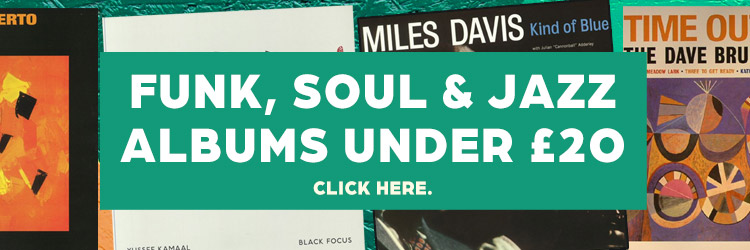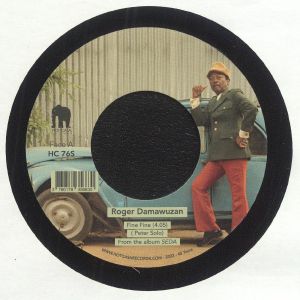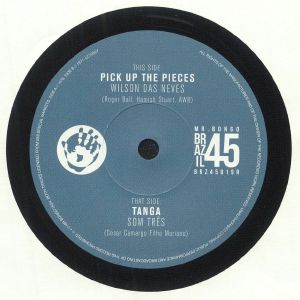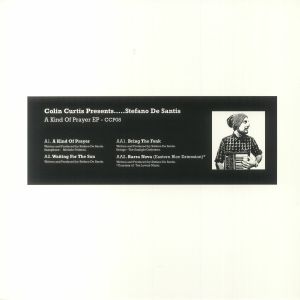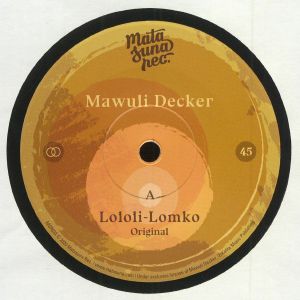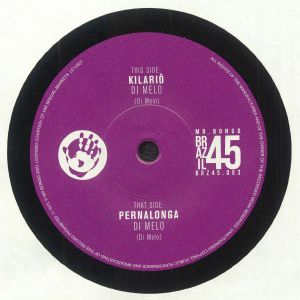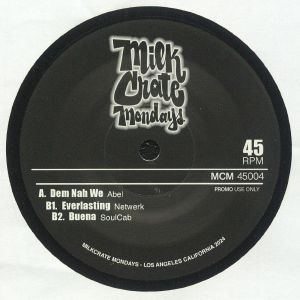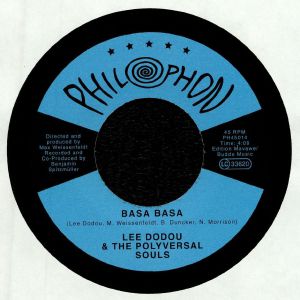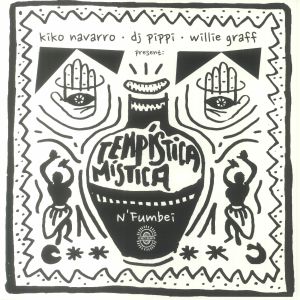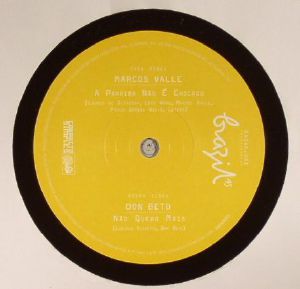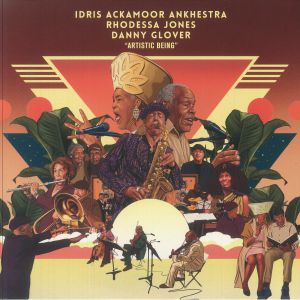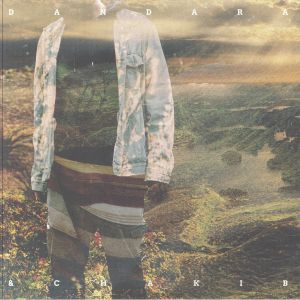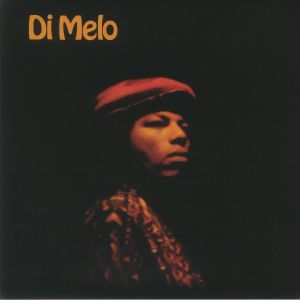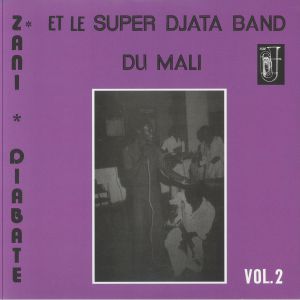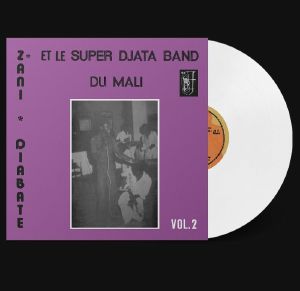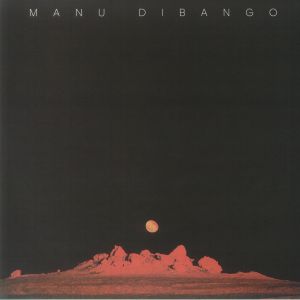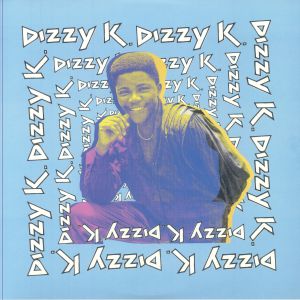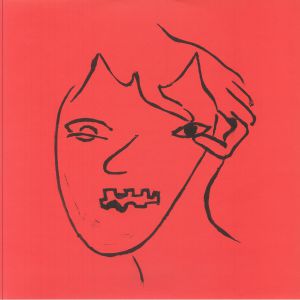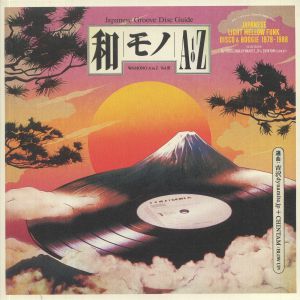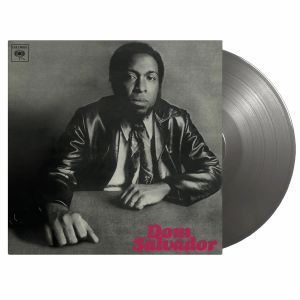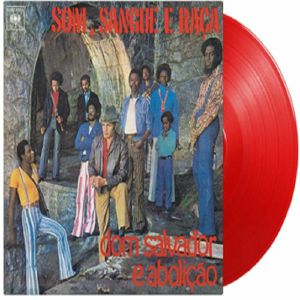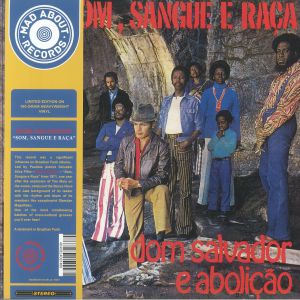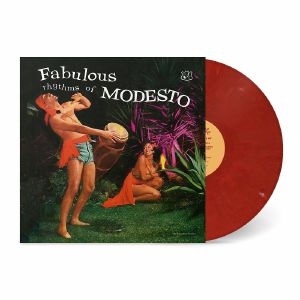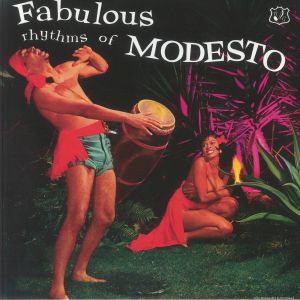Back catalogue: International
Juno's full catalogue of International
シングル
Review: An instantly recognisable voice in the funk sphere for over 60 years, you can't talk about Togolese music with mentioning the funkmaster and 'King of Gazo' himself Roger Damawuzan. Containing an unreleased single from his upcoming album 'Seda', this double single is funk so heavy it'll weigh you down. 'Fine Fine' is a slick and fast-paced track of contentment - leave the man alone he said he's fine! - and 'Red Light' is a squeaky clean showcase of what made Damawuzan so popular in Togo with his carefree and charismatic attitude. All you funk lovers out there have got to give this a spin.
… Read morePlayed by: AfroBase (Radio Chart), Voodoocuts
in stock $13.27
Cat: BRZ45 019R. Rel: 20 Dec 24
Review: Mr Bongo restock a brilliant 7" in their signature Brazil 45s series. The nineteenth to grace it, this blue-starred slice of small wax shone a light on Wilson das Neves' brilliant cover of Average White Band's 'Pick Up The Pieces' on the A, as well as a Mr Bongo fave on the B, Som Tres' potent samba-funk overflow 'Tanga'. The former flexes the historic muscles of a mythic Brazilian percussionist and vibesman, lending fidgety soft feels to AWB's already lull-lifting concoction; then 'Tanga' contrasts to this sense of measuredness with pure animal verve, as Tres' calls out to his bandmates commandingly amid whirlwinds of piano and drums.
… Read more in stock $12.42
Review: Colin Curtis Presents another superb EP here which has been put together "to enlighten the listener to the two very different sides of this project." On the A-side, Stefano De Santis showcases a vintage spiritual jazz side with Afrobeats and plenty of funk in the drums. On the flip is a more broken boogie vibe with big disco strings courtesy of The Sunlight Orchestra. It's a life-affirming sound that fills you with sunshine and then last of all comes an Eastern Bloc Extension of 'Barra Nova' that rides on lush broken-beats all lit up by lush chords.
… Read more in stock $25.98
Review: Over the last couple of years, Matasuna Records has developed a tried-and-tested formula. It revolves around finding and licensing killer cuts - think funk, Afrobeat, tropical flavours and Latin beats - and then pairing them with a fresh, floor-friendly re-edit. Their latest find is something of an overlooked gem: a gorgeously sunny 1983 number from Ghanaian musician Mawuli Decker that's piled high with infectious, EWE-language vocals, Highlife guitars, spacey Moog sounds and cute electric piano solos. The accompanying Renegades of Jazz re-edit is pleasingly faithful to its source material, deftly showcasing Decker's brilliant music while beefing up the bass, subtly tightening up the drums and layering on some complimentary hand percussion.
… Read more in stock $5.94
Review: For the 83rd release in their Brazil 45 series, Mr. Bongo presents yet another a gem in the form of two classic tracks by Brazilian soul legend Roberto De Melo Santos, also known as Di Melo. Born in Recife in 1949, Di Melo is celebrated as an icon of Brazilian funk despite a limited discography. His 1975 self-titled debut is a prized collector's item that is widely loved by Brazilian funk fans, breakbeat enthusiasts and sample seekers. This release revives two standouts from that cult album in 'Kilario,' which is a smooth, soulful masterpiece, and 'Pernalonga,' a feel-good tune featuring catchy guitar, horns and a memorable drum break that was famously sampled in 2009's 'The People Tree.'
… Read morePlayed by: Juno Recommends International
in stock $10.74
MCM Edits Vol 4 (7")
Cat: MCM 45004. Rel: 13 Nov 24
Review: LA-based label Milkcrate Mondays has pleased many a dancer with the MCM Edits series and now the fourth volume in relatively quick succession offers more irresistible heat from a trio of talents. DJ Abel opens up with 'Dem Nah We' which is low slung hip-hop fun with raw, characterful vocals and Afro flourishes. DJ Netwerk's 'Everlasting' is a more slow motion and Balearic joint for sundown and DJ Soulcab's 'Buena' is a shuffling and dembow-infused carnival rhythm with brilliant accordion leads.
… Read more in stock $15.54
Review: Those with a deep knowledge of Berlin's Ghanaian ex-pat "burger-highlife" scene may already be familiar with Lee Dodou, a singer who recorded a number of classic singles and albums during the 1980s as part of bands Georg Darko and Kantata. He retired from music in 1991, but has been persuaded to return to action by the Philophon team. This comeback single is pretty impressive all told, with A-side "Basa Basa" - a triumphantly celebratory chunk of 1960s "concert party" highlife rich in punchy horn lines and Dodou's full-throated vocals - being joined on the flipside by the slower, synth-laden "Sahara Akwantou". Brilliantly, the label describes this as "kraut-life" due to its unique (and rather good) fusion of highlife and German kosmiche.
… Read more in stock $10.45
Tempistica Mistica (12")
Cat: AFTNEV 003. Rel: 05 Oct 23
Review: Afroterraneo Music founder Kiko Navarro steps up for his label next release, but not before enlisting the help of friends and fellow Balearic and house dons DJ Pippi and Willie Graff. Their classy Tempistica Mistica EP offers up a pair of richly percussive and Afro-Latin tinged house cuts that are primed and ready for deployment on the most cultured dance floors. 'N'Fumbei' is a warming shuffler that echoes the work of Fred P, 'Esanah' is more heavy and percussive with its weighty kicks making a lasting mark. 'N'Fumbeats' closes down with a fat, bouncy rhythm brought to life with loose and organic perc.
… Read morePlayed by: Manu Archeo, Marcelo Tavares(Deep Space Podcast)
in stock $34.75
Cat: BRZ45 061. Rel: 07 Feb 17
Review: For the latest volume in their ongoing Brazil 45s series, Mr Bongo has decided to change tack. The two tracks showcased here are from the golden age of Brazilian boogie. On the A-side you'll find Marcos Valle's "A Paraiba Nao E Chicago", a largely overlooked cut from his 1981 full-length Vontade De Rever Voce. While not as instantly as infectious as some of his better-known singles, it's still superb; a breezy, blue-eyed soul cut full of rising horns and sweet Portuguese vocals. On the B-side, you'll find Don Beto's 1978 disco-funk jam "Nao Quero Mais", a superb track that was seemingly inspired by the Doobie Brothers' "Long Train Running".
… Read more in stock $12.72
アルバム
Artistic Being (Record Store Day RSD 2025) (limited gatefold 2xLP)
Cat: STRUT 483LP. Rel: 23 Apr 25
Review: In celebration of 50 years in the performing arts, Idris Ackamoor presents Artistic Being for Record Store Day 2025-a powerful blend of jazz, spoken word and activism. Featuring the voices of acclaimed actor Danny Glover and stage legend Rhodessa Jones, this record captures highlights from the Underground Jazz Cabaret, which was performed during Black History Month 2024 at The Lab in San Francisco. Co-produced by Ackamoor's Cultural Odyssey, the release fuses poetic storytelling with evocative musical textures while reflecting on social justice, identity and resilience. Artistic Being is a profound statement from a visionary artist.
… Read morePlayed by: Juno Recommends Jazz
in stock $30.79
Review: &Chakib is the debut album from Swiss Producer, DJ, and live-act Dominik Traub, also known as Dandara. Infusing influences from Africa, Asia, and Latin America with European techno and house, Dominik's signature sound shines through. The album's inception came after a fateful encounter with Algerian vocalist and multi-instrumentalist Chakib Bouzidi at a festival in Basel. Despite Chakib's untimely passing, Dominik continued the project, honouring his memory by completing the work. Infused with Chakib's voice notes and collaborative recordings, the album serves as a heartfelt tribute and through resilient collaboration and creative influence it emerges as a fine collection of globally influenced dance music.
… Read more in stock $28.24
Review: Singer, poet and painter Di Melo (real name Roberto De Melo Santos) released his debut album in 1975 and it has since become a cult classic. If you can find a copy on second-hand markets it will cost you a small fortune so thankfully Fatiado Discos reissue it here in all its glory. The glorious tracks unite tango, soul, funk and MPB with lovely vocal work and plenty of Latin flair. Musically creative throughout, it is right up there with peers Jorge Ben and Tim Maia, and this version includes an insert with photos from personal family archives.
… Read morePlayed by: Blair French
in stock $33.33
Review: Zani Diabate's Super Djata Band was a leading Malian orchestra in the 1980s. They were known for blending Wasulu hunter music, griot praises, Senufo dances and Fula and Mandingo repertoire with Western psychedelia, blues, and Afrobeat into their own unique forms. In 1982 their album cemented Diabate's place among legendary West African guitarists as he mesmerised listeners with eight vibrant compositions featuring plenty of his hypnotic guitar work. Now it gets reissued on Numero Group and the record solidifies his status as a mythic figure in West African music so for anyone with an appreciation of house styles it is a must.
… Read morePlayed by: Juno Recommends International
in stock $20.09
Volume 2 (ivory white vinyl LP)
Cat: NUM 816LPC2. Rel: 08 Aug 24
Review: This is a special ivory white vinyl version of Zani Diabate's Super Djata Band is another essential release from Numero Group. The band was a leading force in Mali's music scene during the 1980s when they blended Wasulu hunter music, griot praises, Senufo dances, Fula and Mandingo tunes with Western psychedelia, blues, and Afrobeat. Their 1982 album captures Diabate's virtuosity and is a showcase of his mastery of the guitar through eight compelling tracks. The resulting album is a gold standard in world music that confirms Diabate's place among the legendary West African guitarists and illustrates his unique ability to fuse diverse musical traditions.
… Read morePlayed by: Juno Recommends International
in stock $27.97
Review: Sun Explosion is an album by Manu Dibango that is the latest reissue from Soul Makossa after it was first put out in 2016. Dibango is legendary musician from Cameron who was celebrated for his versatility - he could do it all from jazz to funk to soul, blues to electro to reggae. He was trained in classical piano and formed his own band in the mid 60s before moving to Paris in 1965, where he recorded several albums. The six tracks here are all lengthy pieces that take in various styles from Afro boogie jazz to Soukouss beats via catchy Afro soul and funk It's superb album from a notable talent.
… Read morePlayed by: DJ ROCCA
in stock $25.14
Review: Back in 2018, Sticky Buttons dipped into the vast back catalogue of Nigerian synth-funk supremo Dizzy K Falola and served up Sweet Music, a superb double-vinyl retrospective of his hard-to-find work. As the title makes clear, this is the inevitable sequel - a similarly impressive collection largely made up of tracks first showcased on the artist's final three albums of the 1980s. The music on show is colourful, attractive and effortlessly soulful, with Falola expanding his trademark Afro-boogie and Afro-synth sound via references to US r&b, soca and synth-pop. Highlights include, but are in no way limited to, the superb 'Afrikan Jamboree', Afro-electro gem 'Traffic Jammer', the stuttering excellence of 'Bad Boy' and the percussion-rich 'Dance Africa'.
… Read more in stock $40.66
Review: This debut album is sure to prove a solo breakthrough for DJ Narciso. It taps into Lisbon's rich reserves of kuduro and puts a devastatingly fresh new spin on the sound in the wake of pioneers like Nidia, N Fox and P. Adrix. Narciso pushes drill-adjacent rhythms and tresillo syncopations here and creates a unique European counterpart to Havana's wild sense of rhythm that is, at its core, deeply rooted in West African traditions. Tracks like 'Ziu Ziu (Reprise)' and 'Cabelinho' explore quirky textures and unpredictable grooves while 'Vai Estragar a Camera' echoes early Nazar's cantankerous vibe and '5 Do Jo' and 'Jogo' deliver heavy basslines and experimental sounds that cement Narciso's distinctive style in Lisbon's unique landscape.
… Read more in stock $24.58
DJ YOSHIZAWA DYNAMITE JP / CHINTAM / VARIOUS
Wamono A to Z Vol III: Japanese Light Mellow Funk Disco & Boogie 1978-1988 (180 gram vinyl LP)
Cat: 180GWALP 03. Rel: 30 Sep 21
Review: For the latest edition of their essential Wamano A to Z compilation series - the third to date - DJ Yoshiwza Dynamite JP and Chintam have decided to focus on "Japanese light mellow funk, disco and boogie" tracks recorded between 1978 and '88. Like its' predecessors, the eight-track set is heavy on obscurities and little-known cuts, as well as bona fide killer cuts. There's much to savour throughout, from the intergalactic, slap-bass propelled boogie brilliance of Jadoes' 'Friday Night (Extended Mix)' and the laidback funk bliss of Yumi Sato's 'Ame', to the smooth jazz-funk lusciousness of Hitomi Tohyama's 'Rainy Driver' and the Latin-infused, Teena Marie style electrofunk brilliance of Mizuki Koyami's 'Kare Niwa Kanawanai'.
… Read morePlayed by: DJ Kobayashi, Juno Recommends International
in stock $29.10
Avoude (LP)
Cat: LPWABB 190. Rel: 07 Nov 24
Review: Dogo du Togo & The Alagaa Beat Band bring a unique sound to West African music that blends psychedelic rock, traditional Togolese rhythms, voodoo-inspired melodies and infectious dance grooves. Led by Dogo, who dubs their style 'Alagaa Trance,' the band's music weaves hypnotic layers and vibrant beats that are both captivating and energising. Their much-anticipated album, Avoude, captures this powerful fusion and is set for release in November on the We Are Busy Bodies label and promises to transport you into a new world with its mix of cultural depth and rhythmic intensity.
… Read morePlayed by: AfroBase (Radio Chart), Sol Power All-Stars
in stock $32.76
Dom Salvador (limited 180 gram audiophile silver vinyl LP)
Cat: MOVLP 3686S. Rel: 03 Jun 25
Review: Dom Salvador's 1969 album is pure Brazilian jazz magic. This piano maestro effortlessly fuses samba, bossa nova and hard bop into one smooth and moving groove. Tracks like 'Samba do Malandrinho' and 'Tio Macro' show off his slick chops and inventive style as he mixes tight rhythms with wild improvisation. It's a vivid trip to somewhere Brazilian heat meets American jazz cool. Fresh, funky and full of soul, Dom Salvador isn't just playing music here, he's rewriting the rules of jazz fusion, which is why this record is a classic of its genre and a vital reissue.
… Read more in stock $30.79
Som Sangue E Raca (reissue) (limited 180 gram audiophile translucent red vinyl LP)
Cat: MOVLP 3687C. Rel: 09 Jul 24
Review: A pivotal figure in the early 1970s MPB scene, Salvador was not only a highly regarded sessionist and composer but also a band leader. His 1971 album is a vibrant mix of bossa nova, samba, funk, and carioca styles, infused with raw energy. Original copies of this influential fourth album often fetch around $200 due to its eclectic range. From the lively opener 'Uma Vida' to the Beatles-esque narrative of 'O Rio' and the orchestral boogaloo of 'Number One', the album showcases Salvador at the height of his fusionist creativity and musical prowess.
… Read morePlayed by: Juno Recommends International
in stock $36.72
Som Sangue E Raca (reissue) (limited 180 gram blue vinyl LP with obi-strip)
Cat: MAR 004B. Rel: 18 Jul 24
Review: Som, Sangue e Raca remains a cornerstone in Brazilian music. The classic album epitomises Dom Salvador e Abolicao's fusion of samba, soul, rock, jazz, forro, and baiao. Their influential sound heavily impacted Banda Black Rio and that is just one of the reasons why this classic album is celebrated. It is also a great summer listen with its warm and infectious melodies and diverse musicality all of which means it's a must-cop for lovers of international sounds. Even better is the fact that Som, Sangue e Raca now comes in a limited edition of 1000 individually numbered copies on translucent red vinyl.
… Read more in stock $35.31
Fabulous Rhythms Of Modesto (translucent red marbled vinyl LP)
Cat: NUM 606LPC2. Rel: 25 Jul 24
Review: This wonderful album (with equally wonderful artwork) presents a rich, percussive experience that highlights Cuban-born Modesto Duran's significant influence on Latin music and this version is on nice translucent red wax which conveys the heat the music. Duran was a protege of mambo pioneer Perez Prado and his distinctive percussion work graced numerous 1950s hits by artists like Esquivel, Belafonte, Eartha Kitt, and Lena Horne. On his 1960 solo debut, Duran brought together top conga players Mongo Santamaria, Willie Bobo, and Juan Cheda to craft a cinematic fusion of Afro-Cuban, cha-cha, and exotic jazz styles.
… Read morePlayed by: Juno Recommends International
in stock $29.94
Cat: NUM 606LP. Rel: 25 Jul 24
Review: Cuban-born Modesto Dura was a disciple of mambo innovator Perez Prado but also played his own crucial role in Latin dance music's mid-century evolution. His distinctive percussion work features on numerous 1950s hits including tracks by Esquivel, Belafonte, Eartha Kitt, and Lena Horne. On his 1960 solo debut, Duran assembled a stellar lineup of conga players in Mongo Santamaria, Willie Bobo, and Juan Cheda and they created a cinematic blend of Afro-Cuban, cha-cha, and exotic jazz styles. This album offers a rich, percussive vibe while showcasing Duran's influential contribution to Latin music.
… Read morePlayed by: Juno Recommends International
in stock $20.09

 USD
USD





